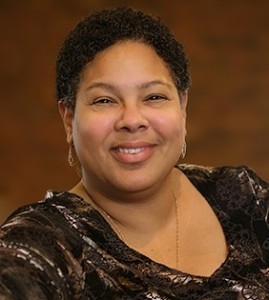
Jerrolynn Johnson, PhD, DMin
By Dr. Jerrolynn Johnson
I HAVE ONE OF the best jobs in the world. As Assistant Director of Center Education of the Detroit Center, I have the privilege of walk with others on a daily basis, as they work to fulfill part of their calling from God while they are trained At Ashland Theological Seminary-Detroit. I’ve learned that recognizing and embracing our called full-faced, without flinching denying it or minimizing it- are some of the bravest and scariest things we can do. In 1995, when I entered the ATS-Detroit Counseling Program as student, I defined calling as the thing I would do for God. Many of our students also defined calling similarly. Over time, I have discovered that walking in our call has far more to do with embracing our called identity in God, rather than doing a specific thing for God.
I count it a true blessing and privilege to help others discover and embrace their called identity– yet this is more difficult that it sounds. Some students arrive at Ashland certain of what God has called them to do. Others are not as sure. During interviews and advising sessions, their called identity becomes evident as we pray together, and pay attention to the flow of their passion, specific life experiences and to interactions with different populations of people of which they are exposed. Because some students are more concerned with what they considered the call than in pursuing their called identity, they struggle (as I did) with the ability to see self, others, situations, possibilities, and outcomes with God’s eyes, while not putting too much stock in the appearance of things. Visible evidence can be so appealing so convincing—it just seems so real and true. My constant prayer to God is to help those of us on the called journey to see what He desires we see, in ourselves, family, others, situations, systems, etc., and to grow us to care more about what God reveals than what either the world, our biases and/or our own eyes see. Only God knows true reality, and we all need His help to discern our calls, called identities and pathways accurately.

Some students come with what many would term deficits, making them appear unqualified to move forward in their call and in their called identity. Many of these students have far more faith in their deficits than in their belief in God’s power to sanctify and redeem them. My job is to help them see their giftedness and then believe in that giftedness and the outpouring of God’s grace into their lives before they leave us, to help them understand that their deficits, not their expertise, are what qualify them to be His followers. Believe it or not, most of the struggle that I’ve encountered concerning call has to do with students’ resistance to embracing and believing their wonderfulness. And it is against the tidal wave of this disbelief, doubt, shame, fear and pride that our Center staff continues to struggle, and against which we will always struggle.
One of the biggest costs that I’ve personally experienced throughout this journey is losing the right to define myself—embracing a called identity often flies in the face of defining oneself. In order to answer our call, we have to lay down our need or right to define ourselves. When answering a call from God, what we are ultimately saying is, “God, I give You the authority, the right, the trust and the permission to tell me not only who You say I am but also what I am supposed to do in order to become this person. God, I give You the right to tell me what I am supposed to do with my time, my talents, my treasures, my trust.” This involves the throttling of our pride and subjugating it to God’s will for our lives. I say the throttling of pride, as in the choking to death of, because pride and obedience to a call cannot coexist easily or well within the same being—let’s not delude ourselves.
 Another reason students fight this is because others in their lives are very invested in keeping them right where they need them. Others’ expectations or assumptions about them can be some of the hugest stumbling blocks to acceptance of a call, more than. we may care to admit. We have had female students who attended churches that did not affirm women in ministry, yet these students clearly heard God calling them to minister for Him. The cost to fulfilling their call can look like heresy to some (if they somehow fall outside of the prescribed norms for ministry) and freedom to others. If these students continue to move forward, they are going to have to make some very tough decisions because we cannot believe God and deny God at the same time. This could include changes in relationship, in ways of relating, in boundaries and accessibility, as well as in intimacy and trust.
Another reason students fight this is because others in their lives are very invested in keeping them right where they need them. Others’ expectations or assumptions about them can be some of the hugest stumbling blocks to acceptance of a call, more than. we may care to admit. We have had female students who attended churches that did not affirm women in ministry, yet these students clearly heard God calling them to minister for Him. The cost to fulfilling their call can look like heresy to some (if they somehow fall outside of the prescribed norms for ministry) and freedom to others. If these students continue to move forward, they are going to have to make some very tough decisions because we cannot believe God and deny God at the same time. This could include changes in relationship, in ways of relating, in boundaries and accessibility, as well as in intimacy and trust.
We have to decide—who am I living to please, God, myself or people I’ve given authority over my life? If we intend to fulfill our call from God, we have to position ourselves to live our lives to please God—more than anything else in the world. And this is a very costly way to live indeed.
Dr. Jerrolynn Johnson was initially led to Ashland Theological Seminary by her hunger to know God and how to better minister to His people. She now inspires and serves students as Assistant Director of Detroit Center Education and Director of Detroit Counseling. Dr. Johnson and her husband, Roger, havethree beautiful daughters, Jessica, Jillian and Joy.
